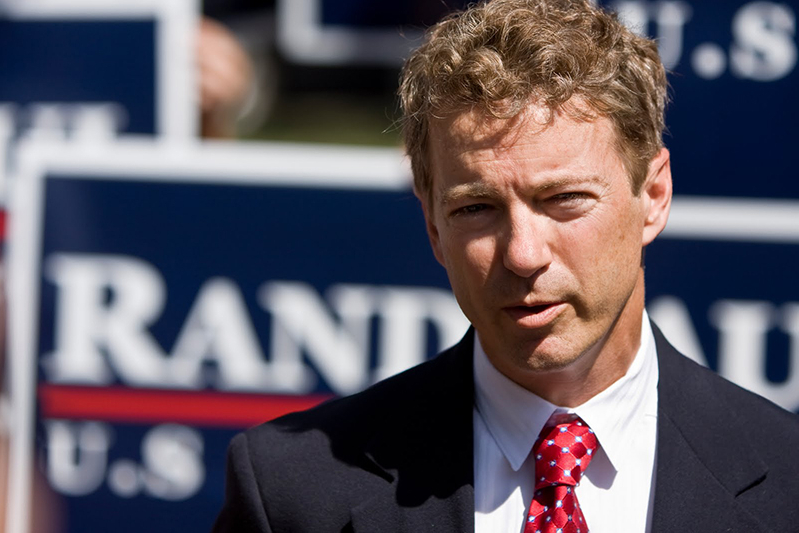
Election season has become something like the Christmas season in that it seems to start earlier with each passing election year. The 2015 contenders are in the process of decking town halls with their presence and working to persuade the media and general public that they are good little boys and girls who deserve everyone's vote. One of the more interesting ones on the conservative side of the spectrum is Senator Rand Paul, and yes, he is still in the running. Apparently, that's the most Googled question about him right now.
That particular question seems to have him pretty riled up, and he had a bit of a colorful response to it, according to CNN Politics. Perhaps part of the sting in this is that CNN also noted Tuesday that Carly Fiorina is pretty much smoking him right now where fundraising efforts are concerned. But this fact aside, Rand Paul has some rather interesting characteristics to ponder in connection to potential presidential possibilities.
When Rand originally ran for his Kentucky Senate seat back in 2010, he was favored by many who are fed up with the establishment games because he wasn't a career politician. He was a doctor and family man who was and still is concerned about the future that his kids would have as this country continues along its present path. His decision to run for a Senate seat came out of a heartfelt passion to be a voice helping this country be the best that it can be, rather than a career politician looking for a paycheck and salivating over the perks that come with being part of the elite class in Washington DC.
Yes, Rand is the son of former Texas Congressman Ron Paul, but Rand tends to be more low-key in how he expresses his views. A few other points that won him his Kentucky Senate seat included his support of term limits, his pro-life stance, defense of the second amendment, state sovereignty, a focus on enhancing job growth, and taking steps to improve the economy. And there seems to be some evidence that job growth has happened in Kentucky since he took his Senate seat.
Contrary tohow he has been spun in popular media, Senator Rand Paul does not hold fast to the traditional party system. That is part of what makes him interesting. As a young Libertarian, or at least young that contending for the presidency is concerned being in his early 50s, he's likely to be more in touch with what younger voters think and want in a leader, and how to reach out to them, especially through social media. His willingness to stream some live video via Facebook and UStream.tv during the Democratic debates on Tuesday was a case in point. Facebook Live is another tool he's using, which allows live video streaming via a mobile app.
His views that government has gotten too big and needs to be reduced in order for America to become a stronger nation appeals to many conservatives. As big as it has become, he will also argue that it is encroaching on the freedoms and privacy of American citizens in a way that is overreaching of Constitutional mandates. One example of that would be how the NSA has taken entirely too much liberty in invading the privacy of Americans and rummaging through their private wireless devices and e-mail to gather information on American citizens.
Paul hasn't been particularly consistent with regard to his support of Israel, but The Jerusalem Post notes that his actions aren't anti-Israel in nature, either. Israel seems to be one area in which Rand Paul seems to echo the views of his father Ron Paul, in that they both have an isolationist focus.






